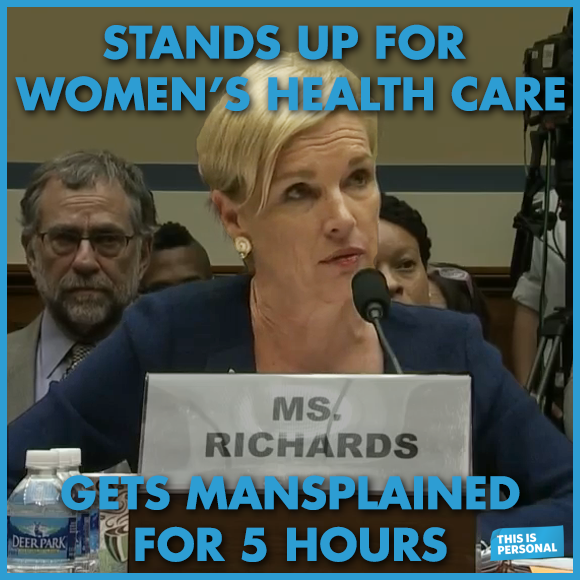Abortion rights, women of color, and LGBTQI+ people are under attack. Pledge to join us in fighting for gender justice.
NWLC to Iowa Supreme Court: 72-Hour Mandatory Delay for Abortion Will Harm Women
 On Friday, May 5, Iowa tried to impose a 72-hour mandatory delay and two-visit requirement on patients who have decided to have an abortion, posing a threat to the health and safety of women in Iowa, especially those experiencing domestic violence and sexual assault, and those who are struggling to make ends meet. The legislature passed this mandatory delay with an “effective upon enactment” provision, having decided that it was of “immediate importance” to stop women who’d already decided upon and scheduled their procedures from obtaining the abortions they sought. The law, which also bans abortions after 20 weeks, would make Iowa the third state to have such a burdensome mandatory delay in addition to a two-visit requirement.
On Friday, May 5, Iowa tried to impose a 72-hour mandatory delay and two-visit requirement on patients who have decided to have an abortion, posing a threat to the health and safety of women in Iowa, especially those experiencing domestic violence and sexual assault, and those who are struggling to make ends meet. The legislature passed this mandatory delay with an “effective upon enactment” provision, having decided that it was of “immediate importance” to stop women who’d already decided upon and scheduled their procedures from obtaining the abortions they sought. The law, which also bans abortions after 20 weeks, would make Iowa the third state to have such a burdensome mandatory delay in addition to a two-visit requirement.
Governor Branstad signed the law imposing these requirements on May 5, and it was scheduled to go into effect immediately. Planned Parenthood Federation of America and the ACLU of Iowa filed a request, on behalf of Planned Parenthood of the Heartland, to stop the law from going into effect while the matter is being resolved in court, but an Iowa state district judge refused, stating that he didn’t believe that patients actually would suffer harm as a result of the law.
The reality, of course, is that a 72-hour mandatory delay and two-visit requirement absolutely threaten the health and safety of patients. These medically unnecessary requirements will delay patients seeking abortion, increasing the cost, anxiety for the patient, and risk of complications (although abortion is very safe, it is invasive and the risk of complications increases with each week of pregnancy). It will force some patients to forgo abortion altogether. When women are prevented from accessing the abortions they seek, they are more likely to remain in or fall into poverty, stay with abusive partners, and experience mental health issues.
Planned Parenthood and the ACLU went to the Iowa Supreme Court to ask it to weigh in and stop the law from going into effect. The National Women’s Law Center submitted an amicus brief with the Iowa Supreme Court on May 8, on behalf of the Iowa Coalition Against Domestic Violence, Iowa Coalition Against Sexual Assault, and the Interfaith Alliance of Iowa, highlighting the multiple ways that this law will harm patients, in particular those who already face barriers to health care.
- The law will impose substantial burdens on rural patients who have to travel to an abortion provider. Approximately 89% of Iowa counties have no abortion provider, and 42% of Iowa women live in those counties. Requiring patients to make two trips to their provider separated by a minimum of 72 hours will force them to spend more money on transportation and lodging during their procedure, take more time off of work, and expend more resources on child care. This will delay care for many patients and completely prevent others from accessing abortion at all.
- The law will increase costs for those in Iowa who are already struggling to make ends meet. 13% of Iowa women live in poverty – and the rates are even higher for women of color, with 33% of Black women, 29% of Native women, 27% of Latinas, and 16% of Asian women in Iowa living in poverty. Additionally, 20% of Iowa women work in low-wage jobs. The added costs caused by requiring women to a clinic more than 72 hours apart will be insurmountable for some of these women, and will delay care for anyone who has to save more money to cover the increased cost.
- The law will inflict particular harm upon individuals who are pregnant as a result of rape. Individuals who are pregnant as a result of sexual assault already have to deal with the trauma of the assault. Forcing them to spend additional time and money on travel, childcare, and to miss work or school, exacerbates this trauma, making this requirement particularly cruel for survivors of rape.
- The law will jeopardize the safety of individuals experiencing domestic violence. By requiring patients to return to a clinic multiple times, several days apart, this law makes it more difficult for individuals whose partners use violence or psychological coercion to control their daily movements or their use of money. Furthermore, women in small rural towns in Iowa are more likely than other Iowa women to experience intimate partner violence, and the violence becomes more severe the more geographically isolated a woman is. Women who are in situations involving domestic violence are more likely to remain stuck in those situations when they are unable to access the abortions that they seek.
- The law threatens Iowans’ ability to use medication abortion, which some patients need and others prefer. Women frequently prefer medication abortion for many reasons, including that it allows for greater privacy and autonomy than the surgical procedure – which may be particularly meaningful for sexual assault survivors. In Iowa, 64% of abortions are medication abortions. Sometimes, medication abortion is also a better medical option for women who, for instance, may have a preexisting condition that make the surgical procedure riskier. The delays that will result from this law will force some women past the window in their pregnancy where they can use medication abortion.
And of course it is important to note, as we did in our brief, that many individuals fall into more than one of these categories and will be harmed in multiple ways as a result of this law.
On Tuesday, the Iowa Supreme Court did stop the law from going into effect until another hearing at the district court, which the district judge must set within 30 days. The temporary injunction is certainly a relief to the many patients who are scheduled for their appointments; but we hope that Iowa courts will take seriously the risk of harm that the law poses to Iowans who will need an abortion in the future, and permanently block the law. In any case, we will continue to be there to point out the harm to Iowans if this cruel law goes into effect.





